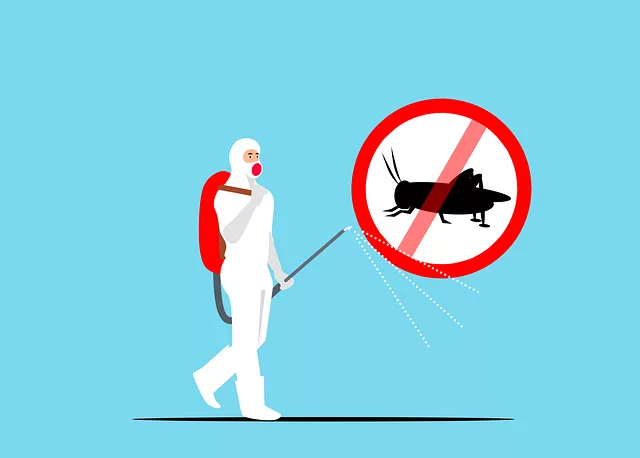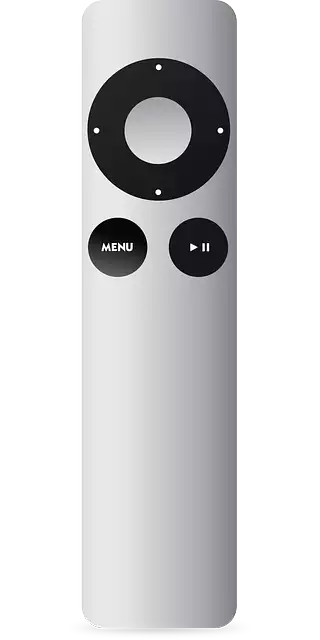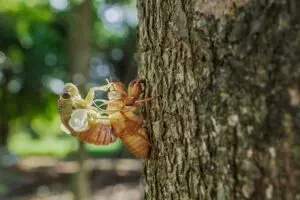Effective insect control services hinge on understanding local entomology, including region-specific species behaviors and life cycles. Professionals leverage this knowledge for tailored treatments, proactive monitoring, and environmentally responsible methods. These services safeguard properties from common pests like aphids, cockroaches, and termites while preserving ecosystems and promoting biodiversity. Seasonally adapted strategies, preventative measures, community involvement, and eco-conscious practices ensure long-term local insect control, enhancing living spaces and maintaining ecological balance. Choosing reputable providers with a history of successful, personalized insect control services is key to achieving these outcomes.
Local insect populations can significantly impact your home and surrounding ecosystems. This comprehensive guide explores the intricacies of local insect control, offering insights into understanding and managing these tiny invaders effectively. We delve into the benefits of professional services, the environmental impact of common pests, and safe control methods. Learn about targeted treatments, seasonal considerations, preventative measures, community awareness, and choosing the right insect control provider for a pest-free environment. Discover how to take charge with these essential insect control services.
Understanding Local Insect Populations: A Comprehensive Overview

Understanding local insect populations is a cornerstone of effective insect control services. Different regions harbor diverse species, each with unique behaviors and life cycles. This diversity requires tailored strategies to manage infestations safely and efficiently. By studying local entomology, professionals can identify specific pests prevalent in an area, their preferred habitats, and the damage they cause.
Regular monitoring and seasonal trends play a significant role in this process. Certain insects proliferate during specific times of the year due to favorable conditions. Local knowledge helps predict these spikes, allowing for proactive insect control services. This comprehensive approach ensures that interventions are timely, targeted, and environmentally responsible, addressing the unique challenges posed by local insect populations.
Benefits of Professional Insect Control Services

Professional insect control services offer a multitude of benefits for both residential and commercial properties. One of the primary advantages is their expertise in identifying specific insect species and tailoring treatments accordingly. Professionals have access to advanced equipment and eco-friendly products that are safe for both people and pets, ensuring minimal environmental impact. They also provide ongoing monitoring and prevention strategies, which are key to maintaining a pest-free environment. Regular inspections help detect early signs of infestations, allowing for swift action before issues escalate.
Additionally, professional services save time and effort compared to DIY methods. Homeowners and business owners alike can enjoy peace of mind knowing that experienced technicians handle the problem effectively. This specialized knowledge translates to more precise applications, reducing the risk of overspray or misapplication of chemicals. As a result, insect control services contribute to creating healthier living and working spaces while safeguarding valuable assets from potential damage caused by insects.
Common Pests and Their Impact on Local Ecosystems

In many local ecosystems, insects play a crucial role in maintaining balance and biodiversity. However, certain species can become invasive and cause significant harm. Common pests like aphids, cockroaches, and termites are known to disrupt native habitats by feeding on plants, spreading diseases, and even damaging structures. Their impact is felt across the food chain, affecting both plant and animal life. For instance, aphids’ excessive feeding can weaken trees and shrubs, making them susceptible to other pests and diseases.
Insect control services are essential in managing these issues. These professionals employ a range of methods, from organic solutions to targeted treatments, to eliminate pest populations humanely. By addressing common pests effectively, insect control services contribute to the preservation of local ecosystems, ensuring that both natural balance and human living spaces remain undisturbed.
Safe and Environmentally Friendly Insect Control Methods

In today’s digital era, many homeowners and businesses are seeking safe and environmentally friendly insect control methods offered by top-notch insect control services. Traditional pest control chemicals can leave harmful residues, disrupt ecosystems, and pose risks to pets and family members. Fortunately, innovative solutions have emerged that effectively manage insect populations without compromising health or sustainability. Natural repellents, plant-based insecticides, and beneficial insects are gaining popularity as eco-conscious alternatives. These methods not only reduce environmental impact but also promote a balanced ecosystem within your surroundings.
By opting for these safe and green practices, individuals can enjoy a pest-free environment while contributing to the preservation of local biodiversity. Professional insect control services trained in these methodologies employ strategies tailored to specific pests, ensuring targeted treatment with minimal ecological disruption. This shift towards eco-friendly solutions reflects a growing awareness of the interconnectedness between human habitats and the natural world.
Targeted Treatments: Identifying and Eradicating Specific Pest Issues

When it comes to local insect control, targeted treatments are a critical component in addressing specific pest issues effectively. These tailored strategies involve identifying the particular insects infesting your area and employing precise methods to eradicate them. Professional insect control services utilize advanced techniques such as inspection, identification, and application of appropriate pesticides or natural remedies.
By focusing on targeted treatments, these services ensure minimal environmental impact while providing swift and lasting solutions. This approach is particularly beneficial for homeowners and businesses dealing with persistent bug problems. It allows for a comprehensive understanding of the local pest ecosystem, enabling experts to implement customized plans that target specific species, thus maintaining balance in the surrounding environment.
Seasonal Considerations in Local Insect Management

When planning local insect control, understanding seasonal variations is key. Different insects thrive in distinct seasons, demanding tailored strategies for effective management. For instance, spring and summer often see an influx of pests like aphids and grubs, requiring proactive treatments to prevent damage to local flora. These periods necessitate regular inspections and timely applications of eco-friendly insecticides by professional services.
Conversely, autumn and winter present unique challenges with increased activity from beetles and moth larvae. As these insects prepare for hibernation, they seek shelter in homes and structures, necessitating specialized treatments. Seasonally-adapted insect control services employ targeted strategies during each phase to ensure optimal results, maintaining a balanced ecosystem while safeguarding properties from unwanted visitors.
Preventative Measures for Long-Term Pest Control

Implementing preventative measures is a key strategy for long-term local insect control. Regular inspections and maintenance are crucial; identifying potential entry points or signs of infestation early can significantly reduce pest populations. Professional insect control services often recommend sealing gaps around windows, doors, and pipes, as well as installing weather stripping to create an impenetrable barrier.
Additionally, proper sanitation practices play a vital role in preventing pest attraction. Reducing water sources, eliminating standing pools, and maintaining a clean environment, both indoors and out, can deter insects. Regular yard maintenance, including trimming vegetation and cleaning up fallen debris, also helps remove potential habitats for pests, further enhancing the effectiveness of local insect control measures.
The Role of Community Awareness in Effective Insect Control

In the realm of local insect control, community awareness plays a pivotal role in ensuring effective and sustainable management. Educating residents about the impact of insects on local ecosystems and health is the first step. By understanding common pest behaviors and habitats, individuals can actively contribute to control efforts. Simple practices like proper waste disposal, sealing entry points, and using eco-friendly products can significantly reduce insect populations.
Community involvement also facilitates timely reporting of insect infestations. Early detection allows for swift action by local insect control services, preventing the spread of pests. Collaborative efforts between residents, local authorities, and professionals create a robust defense against insects, fostering a healthier and more harmonious environment for all.
Choosing the Right Local Insect Control Provider

When it comes to selecting a local insect control provider, thorough research is key. Look for companies that offer a wide range of insect control services, catering to both residential and commercial needs. Reputable firms should have a proven track record of successful pest management, utilizing eco-friendly methods whenever possible.
Check their licensing, insurance, and certifications to ensure they meet industry standards. Read customer reviews and testimonials to gauge satisfaction levels. A reliable provider will offer personalized solutions, flexible scheduling, and transparent pricing, ensuring your insect control needs are met effectively and efficiently.
